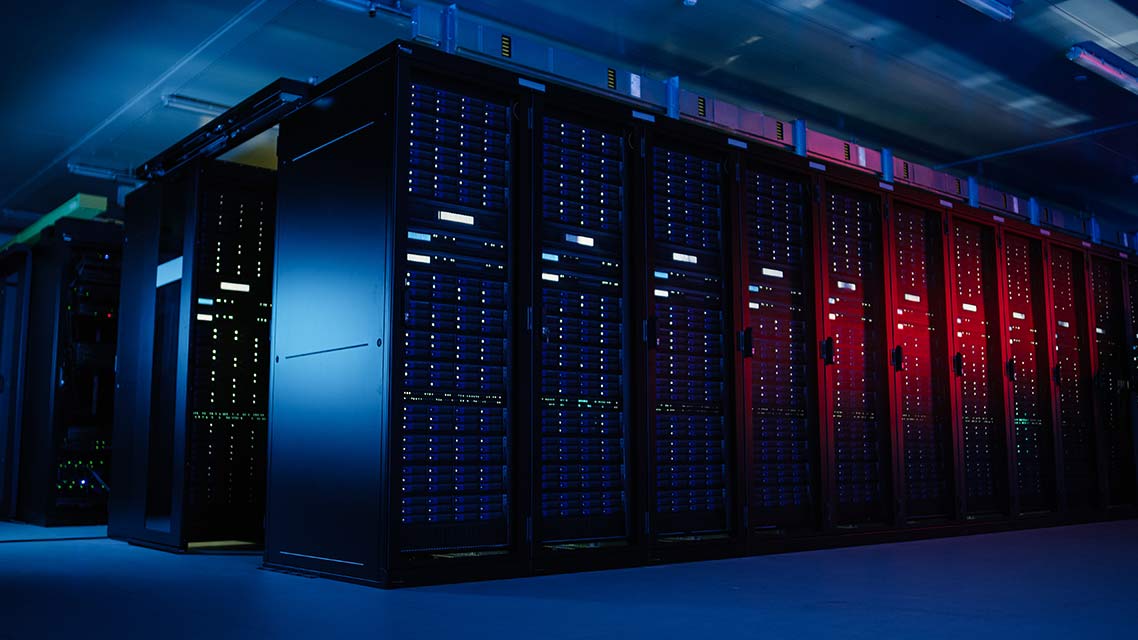
When it comes to dedicated server hosting, having the right system specifications is important for optimal performance. A dedicated server gives you full control over the hardware and software resources, allowing you to customise it according to your needs.
However, with so many options available, it can be overwhelming to choose the best dedicated server requirements for website hosting and other applications. In this article, we’ll explore the essential dedicated server system requirements to help you make an informed decision.
Satisfactory Dedicated Server Requirements
- CPU (Central Processing Unit)
The CPU is the brain of your dedicated server, responsible for processing data and executing instructions. When selecting a CPU, consider the following factors:
- Number of Cores: More cores generally mean better performance for multi-threaded applications.
- Clock Speed: A higher clock speed translates to faster processing power.
- Brand: The two major CPU brands are Intel and AMD, both offering reliable options.
For most use cases, a CPU with 8 or more cores and a clock speed above 3 GHz should suffice. However, resource-intensive applications like video rendering or scientific simulations may require even more powerful CPUs.
- RAM (Random Access Memory)
RAM is critical to your server’s speed because it stores data and instructions that the Central Processing Unit (CPU) needs to access fast. The more RAM you have, the faster your server can process data and handle multiple tasks simultaneously. Here are some guidelines for RAM:
- Basic Websites: 16 GB RAM is a decent starting point for small to medium-sized websites.
- E-commerce Websites: For online stores with moderate traffic, aim for 32 GB RAM or higher.
- Resource-intensive Applications: Applications like databases, video streaming, or gaming servers may require 64 GB RAM or more.
Remember, upgrading RAM is generally more affordable than upgrading other components, so it’s better to have more RAM than you currently need to future-proof your server.
- Storage
Solid-state drives (SSDs) and hard disc drives (HDDs) are two main data storage options. HDDs offer larger storage capacities at a lower cost per gigabyte, while SSDs offer faster read/write speeds but are more expensive.
- HDDs: For applications that require substantial storage space, such as backups or file servers, HDDs are a cost-effective choice.
- SSDs: For applications that prioritise speed over capacity, such as databases or web servers, SSDs are the better option.
- Network Speed and Bandwidth
For a smooth user experience, especially with heavy traffic, consider dedicated hosting servers with at least 1 Gbps network speed (or 10 Gbps+ for data-intensive apps) and unmetered or high-bandwidth plans to avoid throttling or overages during traffic spikes.
- Server Location
The user experience and performance of your visitors can be affected by the server’s location. Generally, it’s best to choose a data centre location closest to your primary audience to minimise latency and ensure faster loading times.
If your target audience is global, consider a server location with good connectivity to multiple regions or a CDN (content delivery network) to distribute content efficiently.
- Redundancy and Backup
For data integrity and continuity, look for dedicated server providers offering RAID configurations for data redundancy, regular automated backups to prevent loss of data, and off-site backup storage for added security against disasters or hardware failures.
- Customer Support and Management
Dedicated server hosting requires more technical expertise and maintenance than shared hosting. Look for providers offering 24/7 support through multiple channels, and consider managed services if you lack in-house expertise to handle server maintenance, updates, and monitoring tasks.
Conclusion
Choosing the right dedicated server requirements is crucial for ensuring optimal performance, security, and scalability for your applications and websites. By considering factors such as CPU, RAM, storage, network speed, server location, redundancy, and customer support, you can select a dedicated server that meets your current and future needs.
Remember, investing in the best-dedicated server hosting can provide a stable and high-performance platform for your business to thrive.
Reference


More Stories
Transforming Appearances with the Perfect Hairpiece Touch
Exploring the Wonders of Modern Sciences
How Sciences Unlock the Mysteries of the Universe